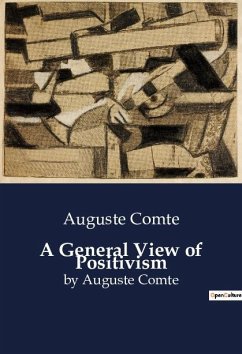
Beyond Good and Evil
Exploring the Dichotomy of Morality and Truth in Nietzsche's Philosophy
Versandkostenfrei!
Versandfertig in 1-2 Wochen
21,95 €
inkl. MwSt.

PAYBACK Punkte
0 °P sammeln!
"Beyond Good and Evil" by Friedrich Nietzsche is a profound exploration of the philosophical dichotomies that have shaped Western thought. Nietzsche challenges the traditional notions of morality and truth, arguing that these concepts are not absolute but rather constructs shaped by human perspectives and instincts. The text delves into the prejudices of philosophers, critiquing their dogmatic adherence to established truths and moralities. Nietzsche posits that the "will to truth" is not an inherent virtue but a complex interplay of instincts and desires. He suggests that philosophers have of...
"Beyond Good and Evil" by Friedrich Nietzsche is a profound exploration of the philosophical dichotomies that have shaped Western thought. Nietzsche challenges the traditional notions of morality and truth, arguing that these concepts are not absolute but rather constructs shaped by human perspectives and instincts. The text delves into the prejudices of philosophers, critiquing their dogmatic adherence to established truths and moralities. Nietzsche posits that the "will to truth" is not an inherent virtue but a complex interplay of instincts and desires. He suggests that philosophers have often been guided by their own moral biases, which influence their pursuit of knowledge. The work also examines the concept of free will, questioning the traditional understanding of causality and autonomy. Nietzsche's critique extends to the scientific community, where he challenges the materialistic and deterministic views of the world. He advocates for a new breed of philosophers who embrace uncertainty and the "dangerous perhaps," willing to question the very foundations of knowledge and morality. Through his incisive analysis, Nietzsche seeks to liberate thought from the constraints of conventional morality and dogma, urging a reevaluation of the values that underpin human existence.















